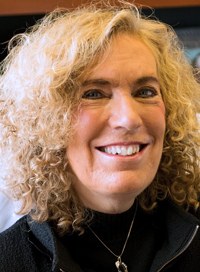Educational Resources
The Rockefeller University is at the forefront of current efforts to translate discoveries made by academic laboratories into effective strategies to prevent and treat disease.
Key educational resources have been established to foster translational activities and technology development from Rockefeller laboratories. This includes internal programming, tri-institutional offerings, as well as external resources.
Internal Resources
Certificate in Clinical and Translational Science Program(opens in new window)
The Rockefeller University’s Certificate in Clinical and Translational Science Program provides trainees with an introduction to the principles and practice of clinical and translational research. PhD students, MD-PhD students, postdoctoral trainees, investigators, and research nurses currently at Rockefeller are eligible for the program.
Kellen Women’s Entrepreneurship Fund Events
The Kellen Women’s Entrepreneurship Fund (Kellen WEF) not only provides funding for translational projects but also programmatic resources to educate graduate students and postdoctoral associates about translational science. This includes a popular webinar series as well as workshops about the entrepreneurial process.
Clinical Scholars Program
Tri-Institutional Resources
Sanders Innovation and Education Initiative(opens in new window)
The Sanders Tri-Institutional Therapeutic Discovery Institute (Sanders TDI) aims to help scientists at Rockefeller, Weill Cornell Medicine, and memorial Sloan Kettering Cancer Center advance their biological discoveries to preclinical studies.
Through the Innovation and Education Initiative, Sanders TDI offers Schrödinger training, a medicinal chemistry course, and a seminar series.
BioVenture eLab(opens in new window)
The BioVenture eLab connects scientific investigators (from Rockefeller, Weill Cornell, and Memorial Sloan Kettering Cancer Center) with professionals in New York City interested in entrepreneurship and/or venture capital in the life sciences. Their mission is to provide tri-institutional scientists with the fundamental skills needed to translate their ideas into commercial products that will benefit patients.
The BioVenture eLab offers various programs including a 12-week course in biomedical entrepreneurship, a “Start-up Symposium”, a competitive Business Plan Challenge, and several workshops on intellectual property and technology due diligence—all for no cost to Rockefeller participants. The BioVenture eLab also sponsors the Womens Founder Initiative—a monthly seminar series to help women innovators become successful entrepreneurs and leaders.
External Programming
I-Corps(opens in new window)
Rockefeller has embraced evidence-based entrepreneurial training and the experiential learning methodology of the I-Corps program. I-Corps is Based on the Lean Launchpad platform, I-Corps offers real-world, hands-on, immersive learning focused on who the “customer” is and what they need.
In 2016, Rockefeller received a CTSA administrative supplement to participate in a “train-the-trainer” I-Corps program hosted by the National Center for Advancing Translational Science (NCATS) and the National Science Foundation (NSF). This project was immensely successful and revealed a need to adapt the I-Corps methodology for clinical researchers. Rockefeller University, along with 8 other CTSA hubs, was awarded a second administrative supplement to develop a rigorous and scalable curriculum (I-Corps@NCATS) to assist with translation of discoveries into successful products that improve human health. The collaboration has expanded to facilitate training across the northeastern United States.
- Regional I-Corps courses vary in length from 2-6 weeks and are offered through the New York City Regional Innovation Node(opens in new window) (NYCRIN). The courses are intended for academic scientists (individuals or teams) without SBIR awards and there is no cost to participate.
- National I-Corps training offered through the NSF, NIH or NCATs run for approximately 7 weeks and are intended for start-up companies with SBIR funding. National I-Corps Teams(opens in new window) are eligible for up to $50,000 to support a team’s participation. The three-member teams are comprised of the Team Lead, an Entrepreneurial Lead, and an Industry Mentor. Eligibility is based upon current NSF funding or previous participation in a qualifying regional program.
Entrepreneurship Lab NYC(opens in new window)
Entrepreneurship Lab NYC (ELabNYC) is a robust annual training and mentorship program for individuals interested in founding a company in the life sciences and healthcare technology space. Launched by the Bloomberg Administration and New York City Economic Development Corporation, and led by a team of experienced entrepreneurs, ELabNYC is designed to teach entrepreneurial business concepts to people interested in starting a company, including concepts that are fundamental to the life sciences and healthcare industries. ELabNYC also provides support to graduate students, post-docs, early-career researchers, engineers, MDs and MBAs interested in advancing biotech and health tech ventures.
ELabNYC Programming includes a suite of educational workshops to prepare participants for the startup world and the challenges they face. There is no cost for Rockefeller participants.
Westchester Biosciences Accelerator(opens in new window)
Accelerator for Biosciences in Connecticut(opens in new window)
Westchester Biosciences Accelerator (WCBA) and the Accelerator for Biosciences in Connecticut (ABCT) are competitive-entry, six-month programs of personalized entrepreneurial education for individuals interested in starting a bioscience venture focused on healthcare innovation in New York and Connecticut.
The WCBA and ABCT Programs are for ventures with an idea who need to expand beyond their current network and put together funding and teams to grow their ventures. There is no cost for the programming.

Elaine Fuchs, Ph.D.
Laboratory of Mammalian Cell Biology and Development
“The Therapeutic Development Fund has been the most inspiring and productive funding initiative Rockefeller has put forward over the past 15 years. The TDF is not simply about getting extra funding for a lab to do a project—it is about educating and inspiring the young scientists at Rockefeller to become involved in taking their elegant science to a translational level”